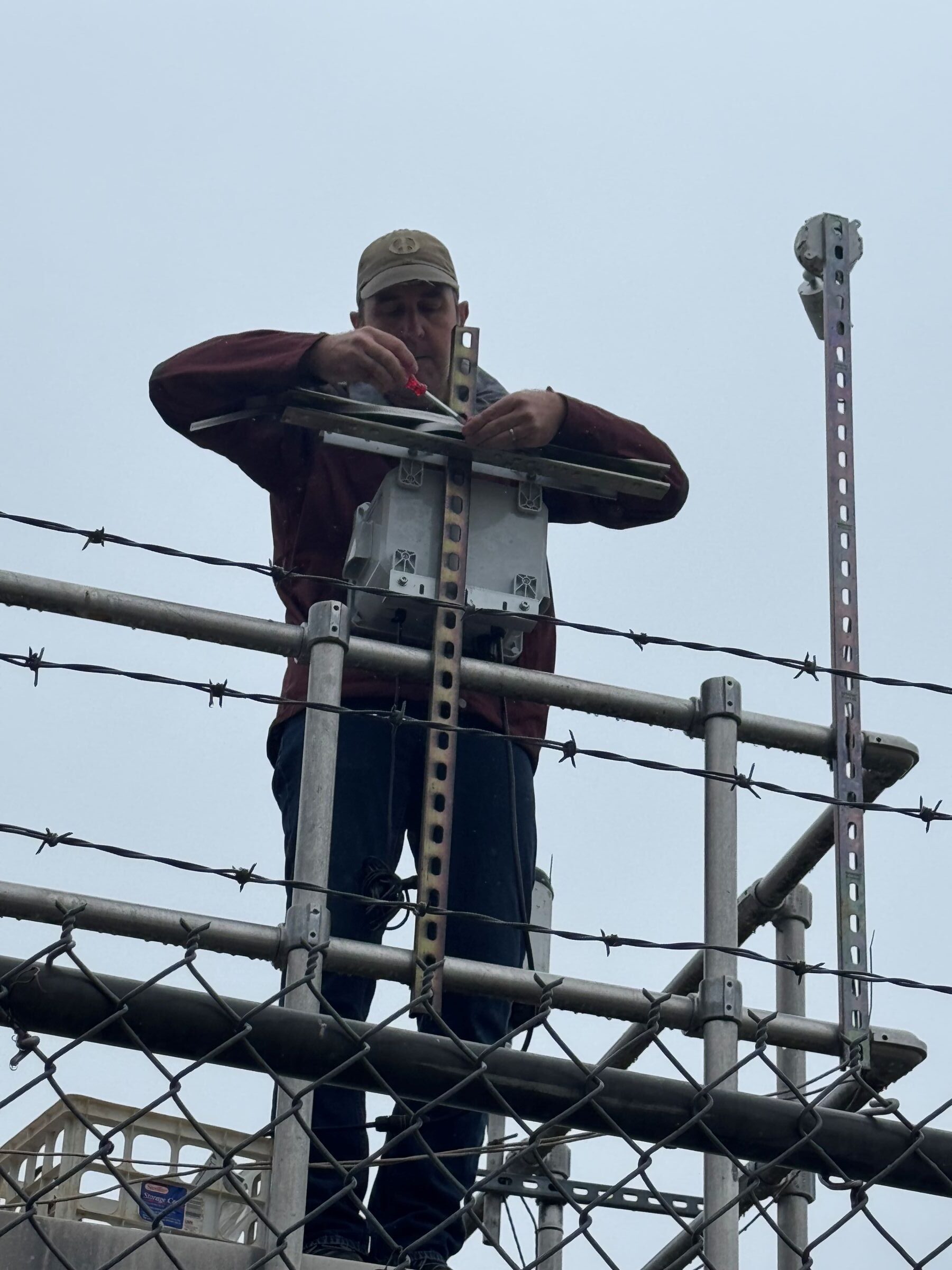Over the past few months, our Community Science team set out to test and evaluate cutting-edge sensor technologies through a series of three distinct deployments: the Apex Air (created in partnership with Kunak and Apex Instruments in North Carolina), AirSence (developed by A.U.G Signals from Canada), and AirGradient (from Thailand). Through utilizing the Mecklenburg County Air Quality Garinger regulatory monitoring station, this initiative represents a significant step in testing and collaboration to improve air quality data collection and calibration.
The AirSence and Apex Air deployments are part of an effort to evaluate their potential use in our programming. Through assessing the sensors’ performance and capabilities, CleanAIRE NC will determine their suitability for addressing air quality concerns and providing valuable insights to communities across North Carolina facing environmental challenges.
AirGradient, on the other hand, is a newer player in the air quality monitoring space. They approached us to help bring a couple of their sensors into the U.S. for testing and calibration improvements. By participating in this effort, we’re joining a co-location project to compare and refine sensor accuracy in real-world conditions.

Co-location studies are essential for ensuring the accuracy and reliability of low-cost air quality sensors.
Co-locating low-cost sensors in close proximity to high-quality, regulatory-grade monitors provides direct data comparisons between sensors measuring the same environmental conditions. This helps us assess sensor performance, identify calibration needs, and enhance overall data reliability.
This rigorous process is crucial for building trust in the data collected by community-based air monitoring networks. For communities, especially those impacted by environmental justice concerns, high-quality data is essential for advocacy and decision-making. By supporting co-location studies, we aim to advance the accuracy and reliability of air quality data, ensuring it meets the needs of the communities we serve.
This project is a testament to the importance of global collaboration in tackling air quality challenges. By working with partners in Canada and Thailand, we are not only advancing sensor technology but also fostering knowledge exchange and building a global network of researchers and practitioners dedicated to improving air quality for all.
As we continue this journey, CleanAIRE NC looks forward to learning more about these sensors’ capabilities and contributing to the broader effort of making air quality data accessible, accurate, and actionable for everyone.
Stay tuned for updates on this effort and what it means for our work in environmental justice and community science!